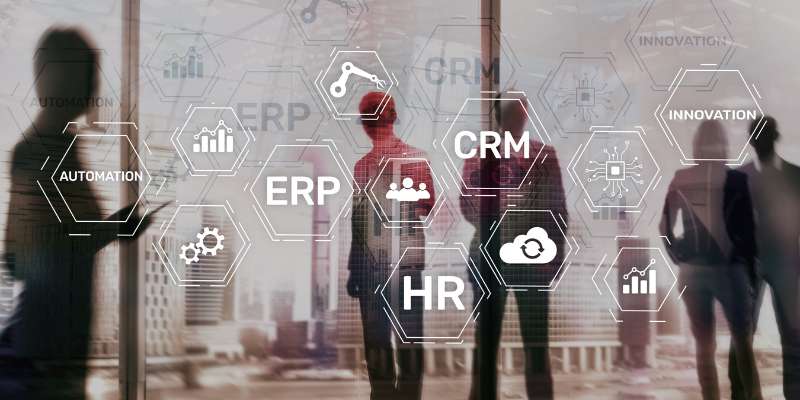Enterprise Resource Planning (ERP) systems are software platforms that assist organizations in managing and integrating the core processes required for business operations in a unified and systematic manner. An ERP system is a central hub for all critical data, such as inventory, order management, accounting, human resources, customer relationship management (CRM), and more. By combining these processes into a single comprehensive system, ERP allows businesses to streamline operations, reduce redundancies, and provide a single source of truth.
Key Components of ERP Systems
1. Financial Management
The financial management component is the foundation of any ERP system, providing tools to track financial activities, manage assets, process invoices, and generate financial reports. This component ensures compliance with accounting standards and helps in strategic financial planning.
2. Human Resources (HR)
HR modules in ERP systems manage everything from payroll and benefits to recruitment and compliance. They improve HR operations by automating tasks such as payroll, which can save a significant amount of time and reduce errors.
3. Manufacturing and Supply Chain Management
This component handles production planning, procurement, inventory, and distribution. It’s intended to optimize manufacturing processes and supply chain operations, ensuring that resources are efficiently allocated throughout the production cycle.
4. Customer Relationship Management (CRM)
Integrating CRM functionality into ERP systems allows businesses to manage customer data, interactions, sales, and marketing in one place. This integration provides a better understanding of customer needs and enhances the overall customer service experience.
5. Project Management
ERP systems include project management tools that assist with project planning, execution, and progress monitoring. These tools ensure that projects are completed on time and within budget.
6. Data Analytics
With built-in analytics functions, ERP systems can analyze data from multiple modules, providing insights into business performance. This helps in making informed decisions based on real-time data.
How ERP Systems Integrate Business Processes
ERP systems integrate various business processes by creating a single database that allows information to flow seamlessly across the organization. This integration eliminates data silos, where each department would previously manage its own information independently. With ERP, when a customer places an order, the system can automatically update inventory levels, initiate billing in the financial system, and adjust production schedules, all in real-time.
Advanced Features and Trends in ERP
1. Cloud-Based ERP
Cloud ERP solutions are gaining popularity due to their cost-effectiveness and scalability. They offer the flexibility to access ERP systems from anywhere, which is especially valuable in today’s mobile and disperse work environments.
2. Artificial Intelligence (AI) and Machine Learning (ML)
Modern ERP systems incorporate AI and ML to automate processes, predict trends, and offer intelligent insights that can help businesses avoid disruptions and identify new opportunities.
3. Internet of Things (IoT) Integration
Integrating IoT with ERP systems enables businesses to monitor and manage connected devices in real time. This is particularly transformative for industries like manufacturing and logistics, where IoT can streamline operations and improve supply chain efficiency.
The Benefits of ERP Systems
- Enhanced Decision-Making
With centralized data, ERP systems provide greater visibility and insights into every aspect of business operations, making it easier for management to make informed decisions.
- Increased Efficiency
By automating routine tasks and standardizing processes across departments, ERP systems reduce manual labor and minimize the chances of errors.
- Improved Data Security
Centralizing data storage with ERP systems facilitates the implementation of uniform security measures, making them easier to manage and more effective.
- Scalability
ERP systems are designed to grow with your business. As the business expands, new features and modules can be added to accommodate new processes and additional users.
Conclusion
ERP systems play an important role in increasing productivity and driving business growth by offering a detailed overview of operations and streamlining various functions. Whether you run a small business or a multinational corporation, implementing an ERP system could be the turning point in your company’s efficiency and success.
Now that you’ve gained a better understanding of ERP systems and their impact on business operations, you might want to look into potential ERP solutions that meet your company’s requirements. Remember that the right ERP system can transform your company by streamlining operations and providing insights that lead to better business decisions.
Our team of experts is here to guide you through every step of the process, from selecting the right ERP system tailored to your business needs to implement it seamlessly. Don’t let complexity hold you back. Contact us today to explore how our ERP solutions can transform your operations and help you achieve your business goals. Happy hunting!








